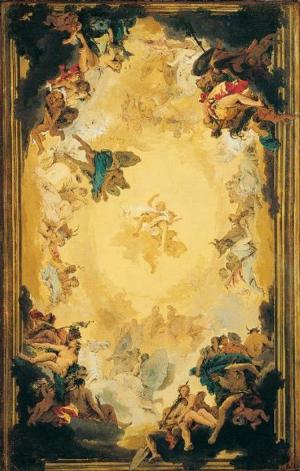Folk-lore and Legends: Russian and Polish
Nonfiction, Religion & Spirituality, New Age, History, Fiction & Literature| Author: | Charles John Tibbits | ISBN: | 9781465604606 |
| Publisher: | Library of Alexandria | Publication: | March 8, 2015 |
| Imprint: | Language: | English |
| Author: | Charles John Tibbits |
| ISBN: | 9781465604606 |
| Publisher: | Library of Alexandria |
| Publication: | March 8, 2015 |
| Imprint: | |
| Language: | English |
Once upon a time there were two brothers who lived upon a piece of ground. The one was rich and the other poor. One day the poor brother went to the rich one to ask him to lend him a horse, so that he might carry wood from the forest. The rich brother lent him the horse, and then the poor one asked him to also let him have a collar for it. The rich man, however, got angry, and would not let him have one, and then it occurred to the poor man that he could fasten the sledge to the horse’s tail. Away he went to the forest to get his wood, and he got such a load that the horse could scarcely draw it. When he came home with it he opened the gate, but he did not think of the board at the foot of the gate, and the horse tumbling over it tore its tail out! The poor fellow took the horse back to his rich brother, but he, when he saw that the horse had no tail, would not receive it, and went off to the judge Schemyaka to complain to him of the poor brother. The poor man saw that things looked bad for him,and that he would be sent for by the judge. He thought over the matter for a long time, and at last set off after his brother on foot. On their way the two brothers had to pass over a bridge, and the poor man, thinking that he should never return from the judge alive, jumped over it. It chanced that, just at that time, a man’s son was driving his sick father to the baths, and was passing under the bridge. The poor man fell upon the old man and killed him, and the son went off to the judge to complain of his father’s having been killed. The rich brother, when he came to the judge, laid his complaint before him, telling him that his brother had pulled out his horse’s tail. Now the poor man had taken a stone and wrapped it in a cloth, and he stood with it in his hand, behind his brother, intending to kill the judge if he did not decide in his favour. The judge thought the man had brought a hundred roubles for him in the cloth, so he ordered the rich man to give his horse to the poor man until the tail was grown again. Then came the son to complain to the judge of the poor man having slain his father. The poor man again took the stone wrapped in the cloth and showed it to the judge, who thought the man must there have two hundred roubles to give to him for deciding the case. So he ordered the son to take his place upon the bridge and the poor man to stand below. Then the son was to throw himself off the bridge on to the poor man and crush him to death.
Once upon a time there were two brothers who lived upon a piece of ground. The one was rich and the other poor. One day the poor brother went to the rich one to ask him to lend him a horse, so that he might carry wood from the forest. The rich brother lent him the horse, and then the poor one asked him to also let him have a collar for it. The rich man, however, got angry, and would not let him have one, and then it occurred to the poor man that he could fasten the sledge to the horse’s tail. Away he went to the forest to get his wood, and he got such a load that the horse could scarcely draw it. When he came home with it he opened the gate, but he did not think of the board at the foot of the gate, and the horse tumbling over it tore its tail out! The poor fellow took the horse back to his rich brother, but he, when he saw that the horse had no tail, would not receive it, and went off to the judge Schemyaka to complain to him of the poor brother. The poor man saw that things looked bad for him,and that he would be sent for by the judge. He thought over the matter for a long time, and at last set off after his brother on foot. On their way the two brothers had to pass over a bridge, and the poor man, thinking that he should never return from the judge alive, jumped over it. It chanced that, just at that time, a man’s son was driving his sick father to the baths, and was passing under the bridge. The poor man fell upon the old man and killed him, and the son went off to the judge to complain of his father’s having been killed. The rich brother, when he came to the judge, laid his complaint before him, telling him that his brother had pulled out his horse’s tail. Now the poor man had taken a stone and wrapped it in a cloth, and he stood with it in his hand, behind his brother, intending to kill the judge if he did not decide in his favour. The judge thought the man had brought a hundred roubles for him in the cloth, so he ordered the rich man to give his horse to the poor man until the tail was grown again. Then came the son to complain to the judge of the poor man having slain his father. The poor man again took the stone wrapped in the cloth and showed it to the judge, who thought the man must there have two hundred roubles to give to him for deciding the case. So he ordered the son to take his place upon the bridge and the poor man to stand below. Then the son was to throw himself off the bridge on to the poor man and crush him to death.















